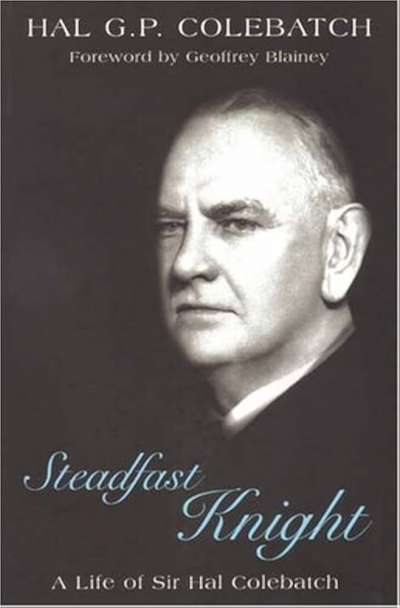Hal Colebatch
Steadfast Knight: A life of Sir Hal Colebatch by Hal G. P. Colebatch
by Paul de Serville •
Simon Patton reviews 'The Earthquake Lands' by Hal Colebatch, 'The Winter Baby' by Jennifer Maiden, and 'To the Ocean & Scheherazade' by Richard Allen
by Simon Patton •
One of the challenges confronting the writer of poetry is the balancing of public and private modes in an engaging and satisfactory whole. In these three collections the precarious possibilities of balance, of confiding and confronting, are attempted in very different ways.
... (read more)Chris Wallace-Crabbe reviews 'Poems for an Exhibition' by R.H. Morrison, 'Outer Charting' by Hal Colebatch, and 'The Flower Industry' by Andrew Sant
by Chris Wallace-Crabbe •
The three books under review here promote no generalisation about the condition of poetry, the health of the beast, unless they call to mind the difference between poems which are interesting from line to line and those which somehow resonate as wholes. R.H. Morrison, the eldest of the three poets, is the one who most often produces whole poems, at least to my ear.
... (read more)
